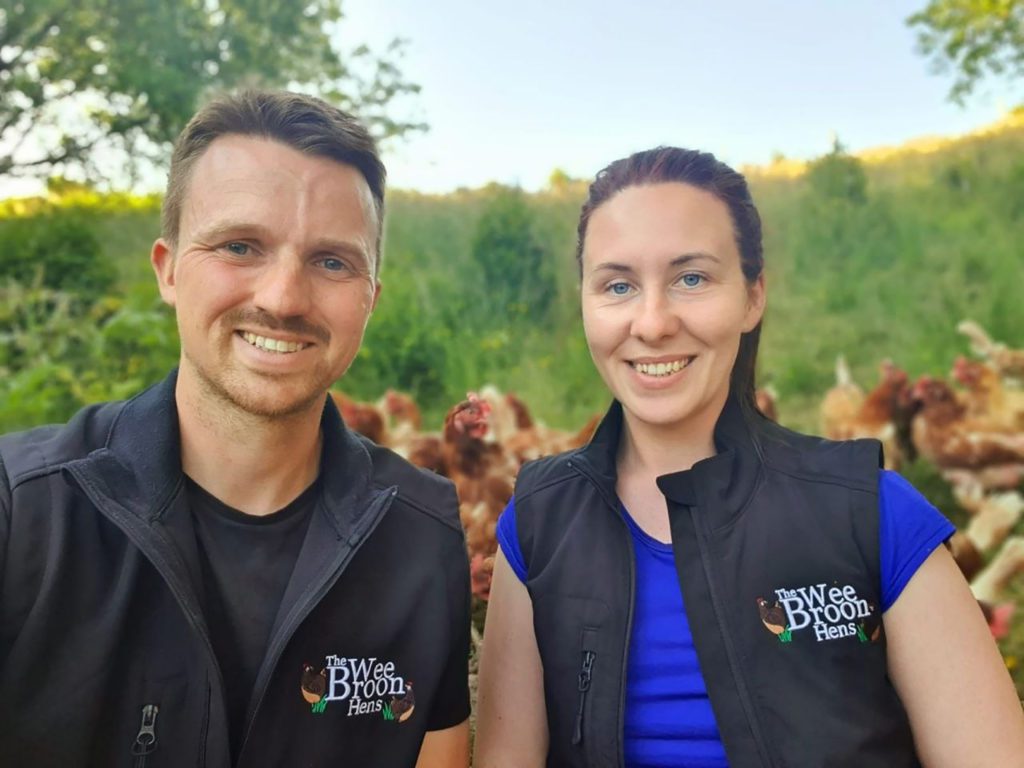From having a clutch of just 30 chickens and delivering eggs locally, Maria and Gordon Atkinson-Ligat have now expanded their business, The Wee Broon Hens which was founded in 2019, to sell other Scottish produce at events and farmers’ markets.
However, the couple know a thing or two about keeping chooks. Gordon was the manager of a free range farm with 96,000 hens when he met Maria.
She laughs and explains it wasn't love at first sight: "I don't know how he managed it, but he got a piece of egg shell stuck in his eye."
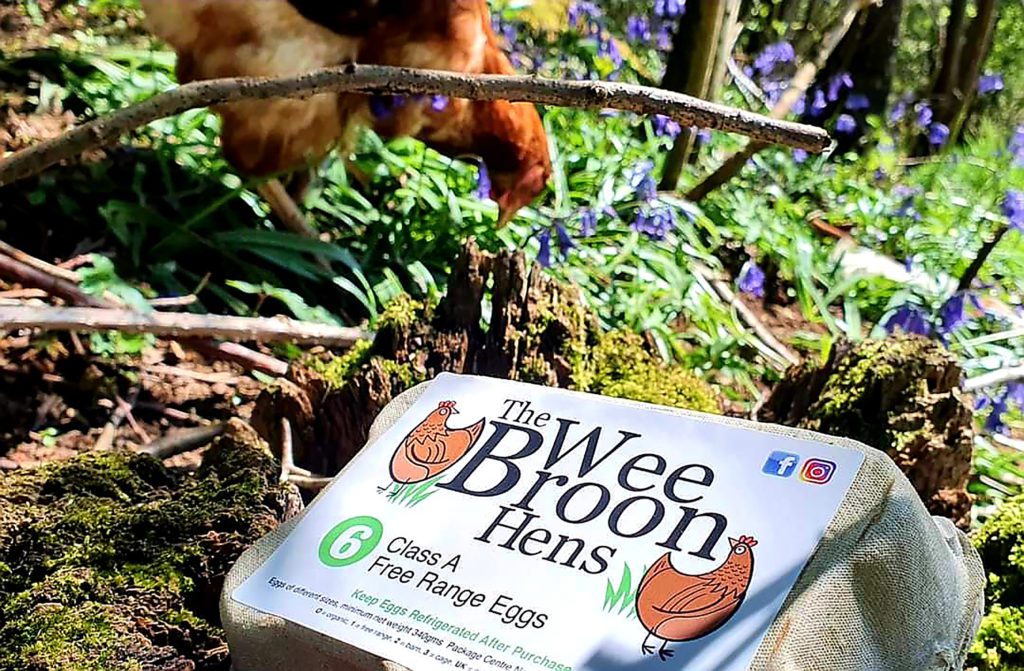
But love quickly blossomed and the couple soon realised they weren't going to progress any further in their careers: Gordon was already the manager and Maria was in charge of one of the sheds, she says: "I didn't want to do it for the rest of my life. I wanted to work for myself."
Neither of the pair come from a farming background.
Gordon had always dreamt of having his own hen shed. "I always had it in my head that I would start big with 16,000 hens."
So the couple decided to leave the world of commercial egg farming behind and Gordon began working on a dairy farm.
Gordon grew up in the small village of Newmilns, where his family kept a few hens in their back garden and he thinks that is where his interest in poultry began.
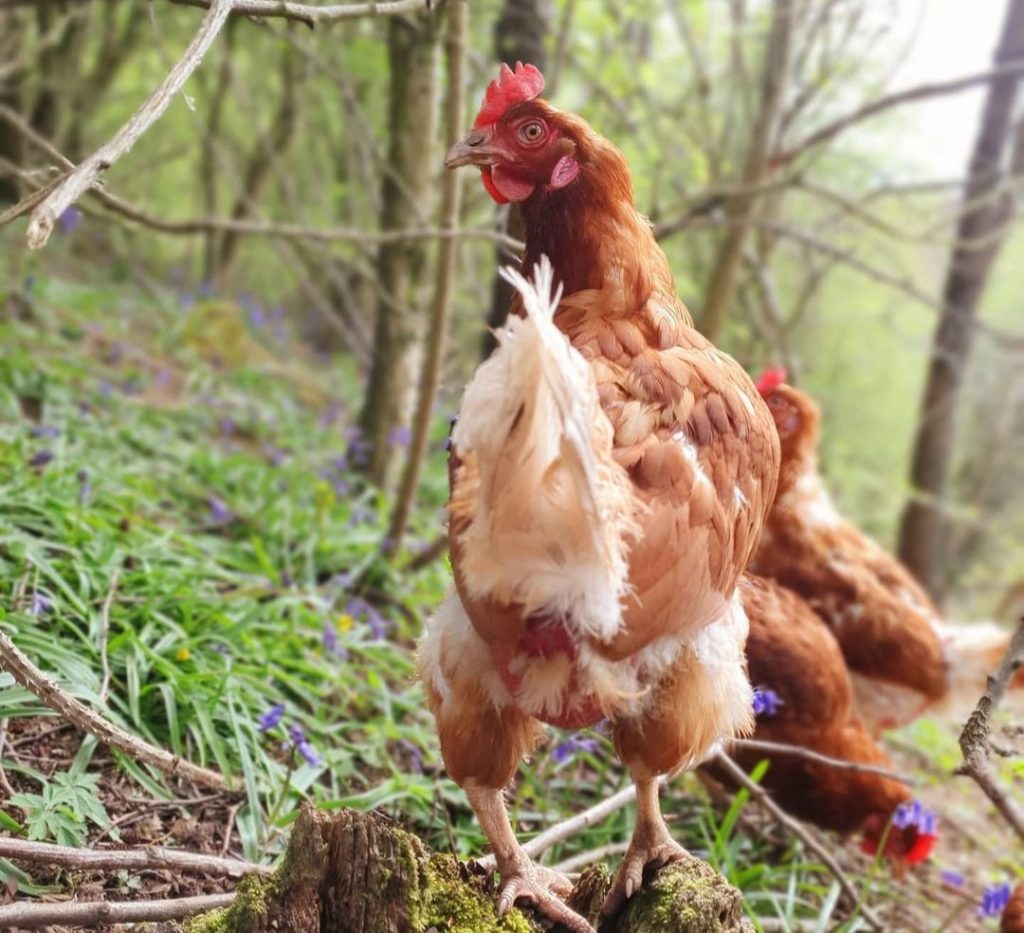
He tells me: "Farming is a hard thing to get into because you don't know people. It feels like a closed community when you are on the outside of it."
He left school and studied poultry production at SRUC Auchincruive for a year and then worked in commercial farms for 10 years.
On the poultry course he learned about intensive, barn and free range methods, and egg as well as meat production.
Maria grew up in Muirkirk in Ayrshire, she comes from a family of nine. "I'm seventh down the line. I had a great childhood."
Her mum and dad have been married 47 years but she adds: "I don't think I could have nine kids myself."
The family moved into the Ayrshire countryside when she was three, so she had a different upbringing to her siblings. "I'm the only one who lives in the country and wants to go into farming."
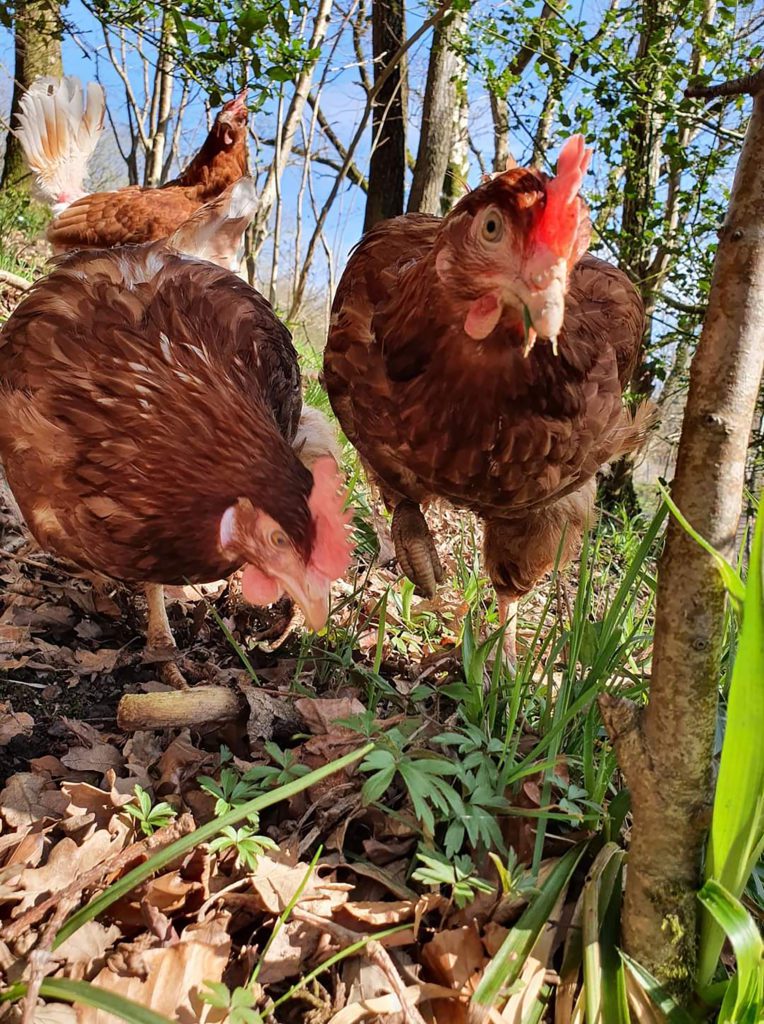
However, as a child, she wanted to own her own land and to work for herself. In short, Gordon jokes: "Essentially we are as country as you can be for living in the town and not being from the country."
After school Maria studied Equine Studies at SRUC Oatridge, secretly she wanted to study agriculture but it wasn't until she met Gordon that she admitted that as she believed everyone would laugh.
"I thought you had to be in farming to be a farmer," and Gordon agrees: "Looking from an outside perspective that is very much the impression people have of the industry."
So Maria headed back to college to study Agriculture at SRUC in Ayr, and after she completed the course they decided to get 30 hens, as a hobby.
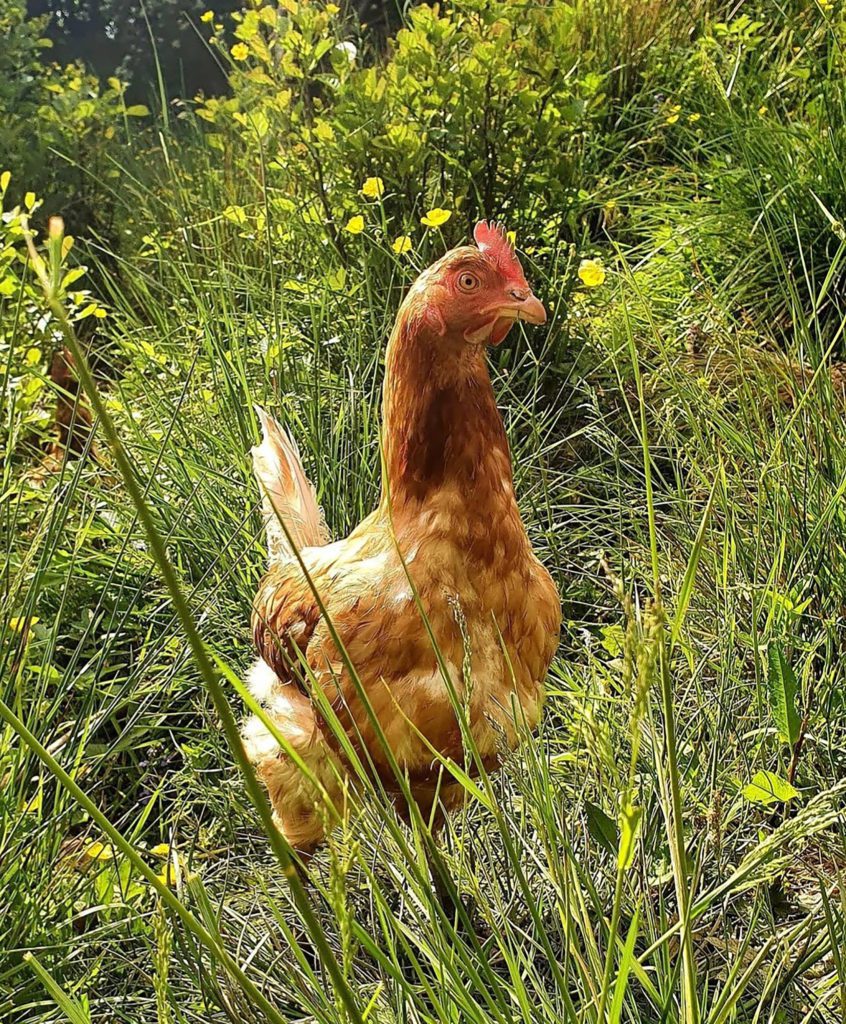
"We don't have land or money, so the only way they could make a viable business was by starting on a smaller scale and selling directly to consumers.”
At the time they both worked at a dairy farm, so they rented a small patch of land to keep the first hens, housing them in an old garden shed which they got from gumtree.
Maria's sister came up with the name, The Wee Broon hens, which summed up their venture nicely.
Maria laughs about how anxious she was about finding customers.
"I remember panicking about 30 eggs. Who is going to buy eggs from us? But people did and that still baffles me now."
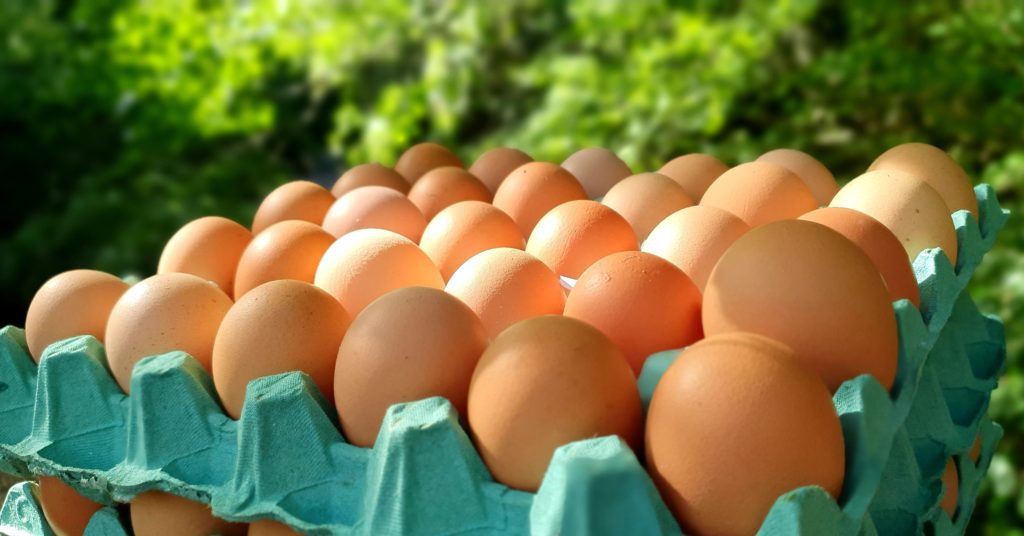
Gordon explains despite the fact they were used to handling thousands of eggs at the commercial plant, the pressure of having 30 eggs coming at you every single day without a customer base was stressful.
The pandemic came and Boris Johnson made the announcement that everyone should stay inside and use food delivery services.
However, they didn't think it would have any effect on their business, but overnight they were swamped by orders. So, they decided to upscale and ordered 500 point of lay hens, so the couple had to enlist the help of their fathers in building a bespoke 14 by 6 metre hen shed in six weeks.
Maria jokes: "Pardon the pun, they did a cracking job.”
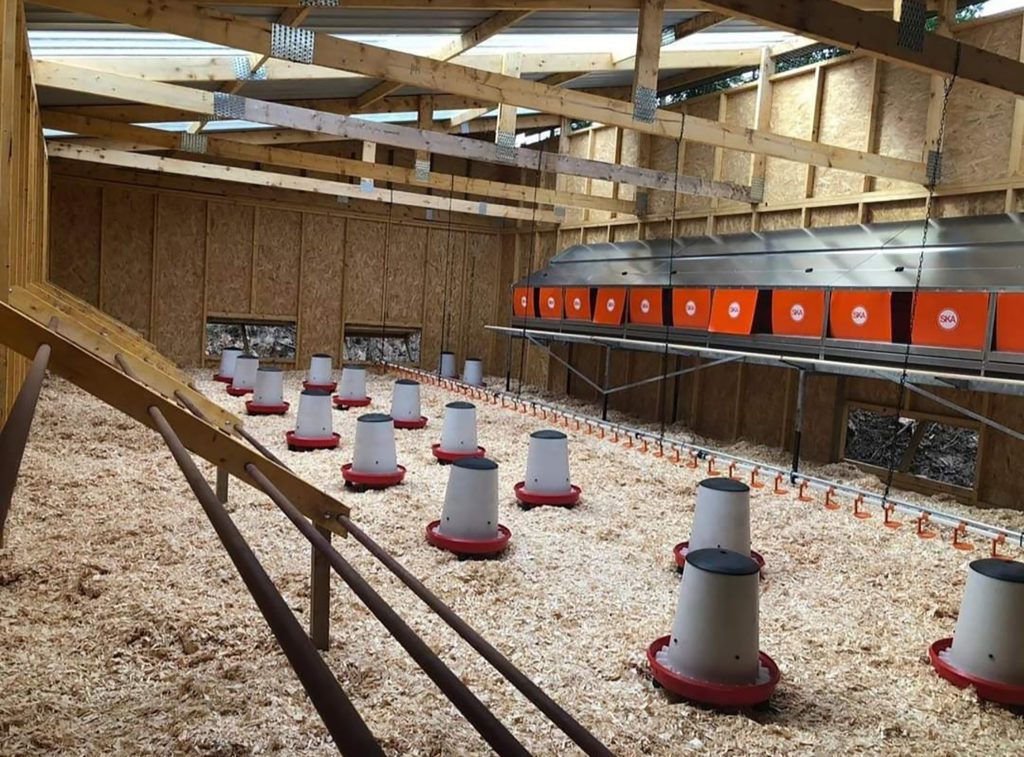
They couple had invested their savings and the profits from their egg sales with this expansion, but still enjoy the challenges of running their own egg delivery business.
Maria says: "If I won the lottery I would still do what I'm doing today I would just be able to buy that small holding a whole lot sooner. It is a lot more mentally challenging. Your brain never turns off."
Their shed can hold a maximum of 600 birds who have free range access to two acres of woodland with trees and shrubs and long grasses.
At the end of last year, they also bought three bee hives having completed a course with Ayr and District Beekeepers’ Association. Maria says: "We found it fascinating." With the help of their bee mentor, this year they hope to have their own honey by the end of the summer.
Hen welfare takes top priority and the couple provide their hyline birds with extra enrichment and Maria also explains: "Once our laying hens have passed their best we work with a rehoming centre so they go to little retirement homes and a lot of our customers like that."
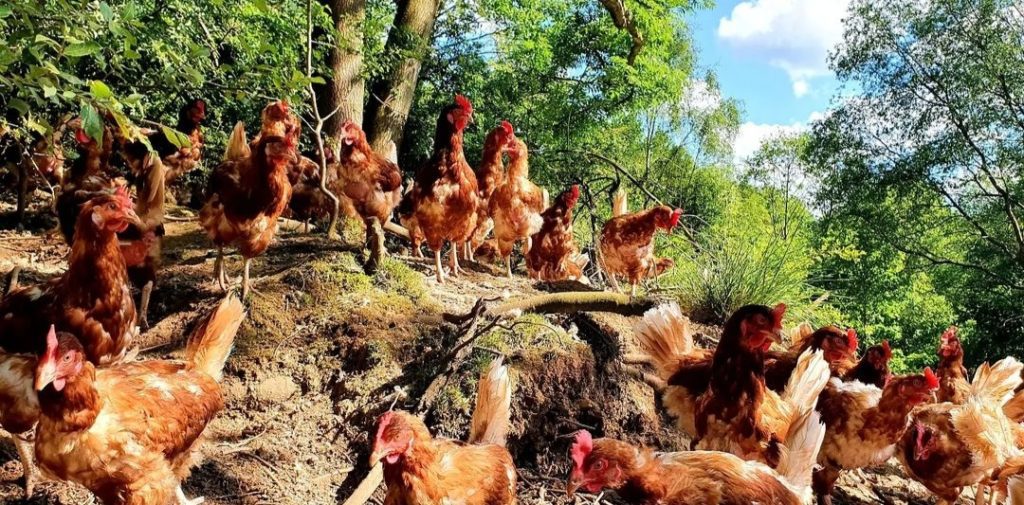
They frequently post about their wee broon hens on social media, Maria says: "I think people like to know who is producing the food, that it's just us two taking pictures on our phones of our little hens but people respond to it."
After covid regulations many delivery businesses lost business but Gordon and Maria managed to keep their core of loyal customers.
They decided they wanted to expand but a fixed site shop in a town felt wrong, so Maria had another idea: "Why don't we open a mobile farm shop and convert a horse box so we can bring fresh produce to our customers."
The idea was also to stock other Scottish produce. They now sell Ayrshire tatties, Piccalilli and chutney from Arran, Scottish berry Jam made in Cowdenbeath, Tablet from Falkirk, and Leaf tea hand picked on the Isle of Kerrera.
Initially Gordon was sceptical but Maria was adamant and a few weeks later she arranged to view some old horse boxes in Yorkshire.
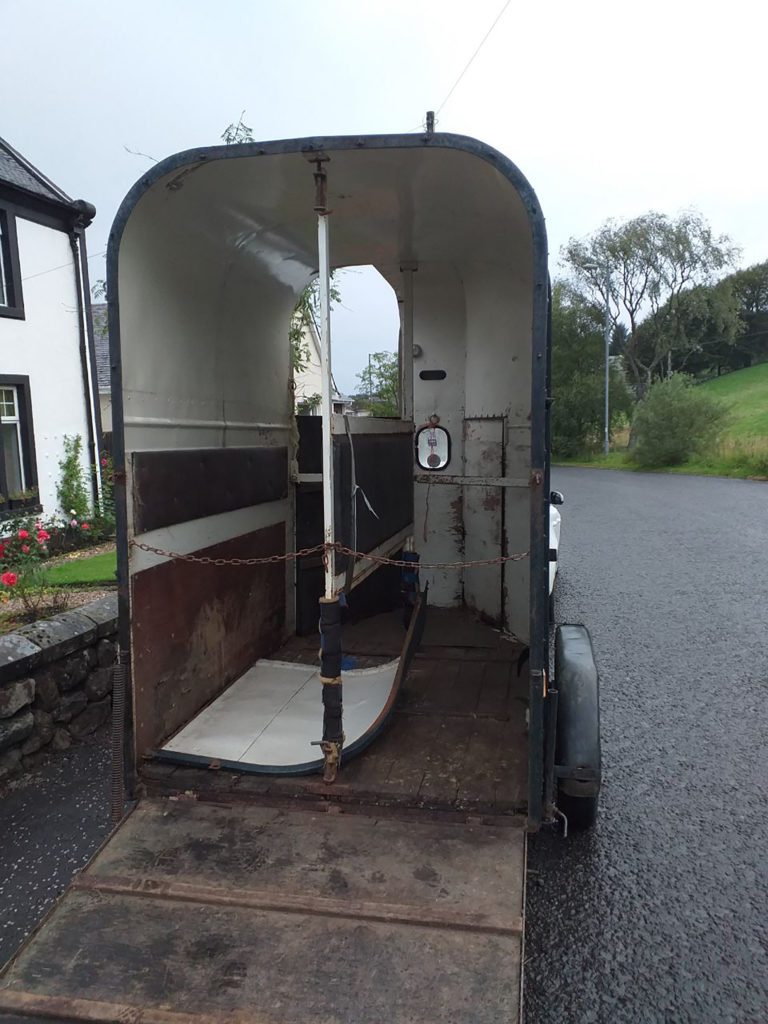
Despite the top door of the horse box they viewed falling off, Maria knew it was the one for them.
The horse box is a 20-year-old with bumps and scrapes on the roof but Maria enjoys its charms "It has a history, and it has been used for horses but we are upcycling this for something else. I think it even had horse poo in it when we bought it. I just love it."
The conversion was a labour of love, and when the project stalled through lack of time, the couple were both working. They made the difficult decision to sell their house and they now live with Maria's parents, so they can save and ultimately buy their own land quicker. Gordon says: "I don't regret it at all."
By reducing their working hours, they were able to focus and put the final touches to their farm shop trailer.
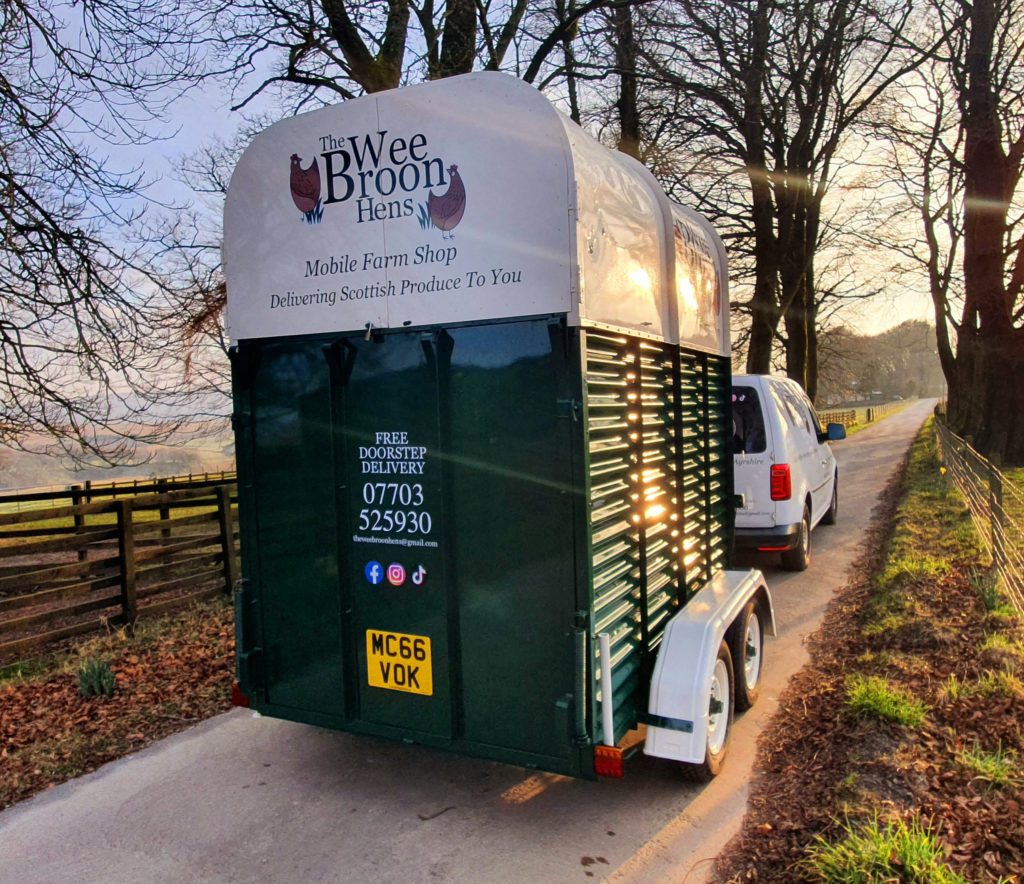
The horse box is a regular at Dumfries house market but they plan to go to the pipe band championships in Dumbarton, Making Waves Festival and Marymass in Irvine, as well as The Arran show.
The horse box had only been operational for a couple of months, but people kept asking, 'Are you taking it to the highland show?'
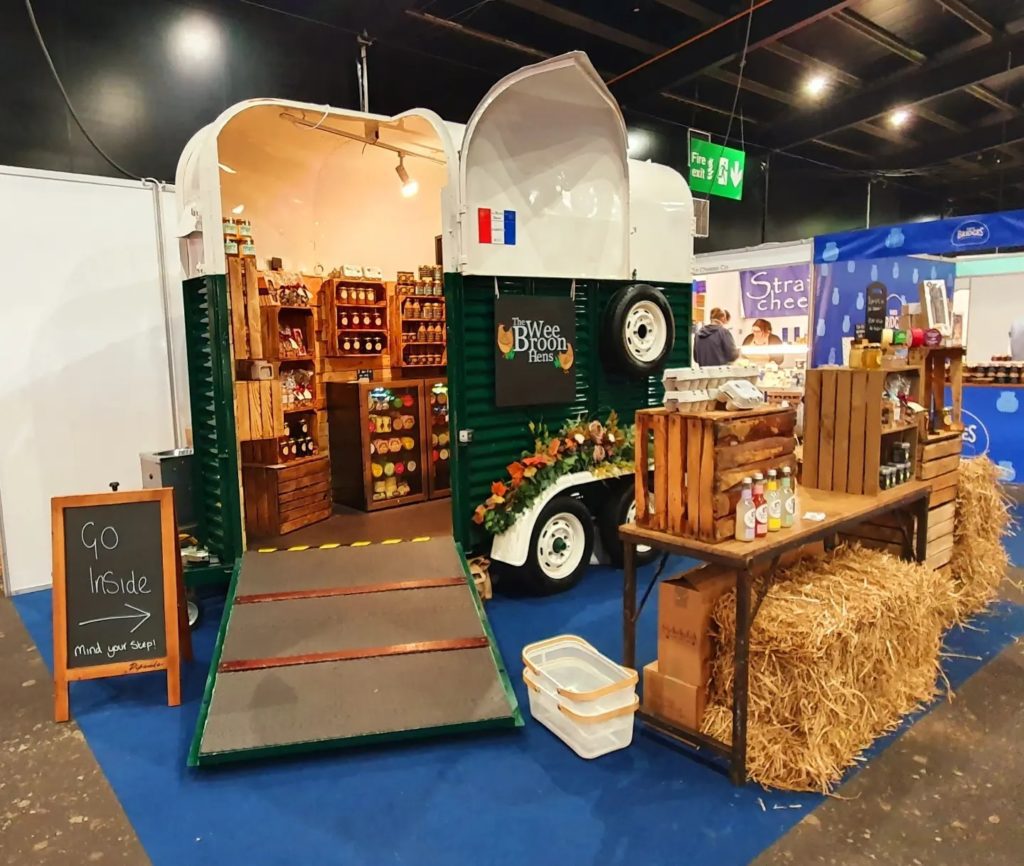
So 10 days before the show began Maria emailed to find out whether they had a pitch available. There was one space left in Scotland's Larder food hall.
Then, Gordon said the reality kicked in, "Oh gawd, are we actually going to do this." Taking a pitch meant 12 hour days - but the couple work really well together, Gordon is one to ponder a situation while Maria is more impulsive, but the combination clearly works.
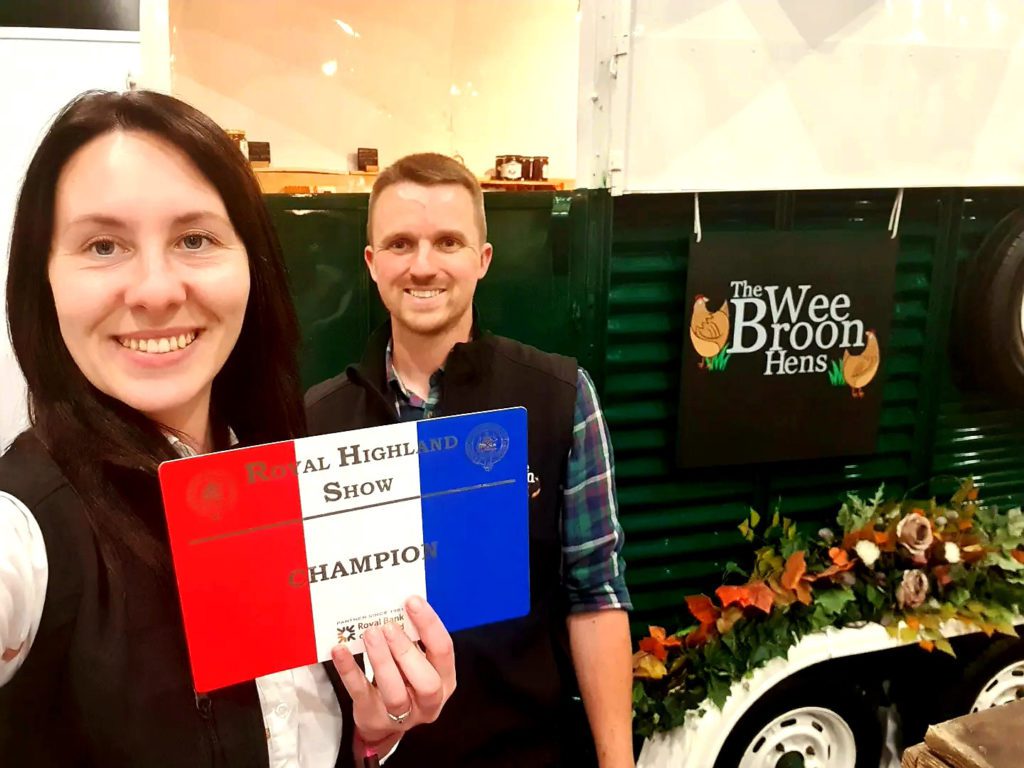
The horsebox won Scotland's Larder Best Exhibitor 2022 at the Highland show and Maria chuckles: "We didn't even know it was a competition. A lady came round with a clipboard asking loads of questions and I thought she was from health and safety!
"It was a really nice surprise to win, I would have been really nervous all day if I had known that it was a competition." Although a pitch at the Royal Highland show is expensive, they hope to go back next year and in the meantime they plan to get their prize card framed and displayed in the horse box.
